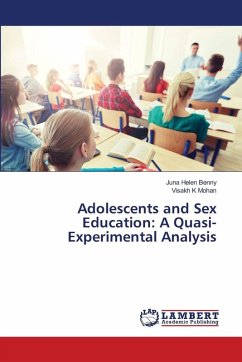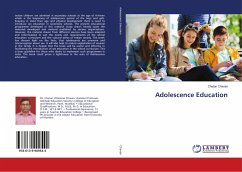
The Effect of Teachers' Attitudes on Sex Education in Kenyan Schools
Versandkostenfrei!
Versandfertig in 6-10 Tagen
27,99 €
inkl. MwSt.

PAYBACK Punkte
14 °P sammeln!
This was a qualitative study which sought to find out how teachers' attitudes impact on sexual and HIV/AIDS education in Kenyan primary schools with special reference to Dagoretti Division of Nairobi. The key methods of data collection employed were desktop research, oral and in-depth interviews, Focus Group Discussions and observations. As it is the case with the qualitative research paradigm, this study did not have a predetermined sample size as the major consideration in such studies is the quality of the information collected and not the number of people interviewed. Purposive sampling wa...
This was a qualitative study which sought to find out how teachers' attitudes impact on sexual and HIV/AIDS education in Kenyan primary schools with special reference to Dagoretti Division of Nairobi. The key methods of data collection employed were desktop research, oral and in-depth interviews, Focus Group Discussions and observations. As it is the case with the qualitative research paradigm, this study did not have a predetermined sample size as the major consideration in such studies is the quality of the information collected and not the number of people interviewed. Purposive sampling was employed to choose the study site after which institutions for the study were picked through convenience sampling. Once the institutions had been selected, purposive sampling was again used to draw individual respondents for the study. Data was analyzed through the use of a wide range of qualitative data analysis techniques like thematic analysis, narrative analysis, discourse analysis, constant comparative analysis and lastly through the use of contemporary computer programs like SPSS.












